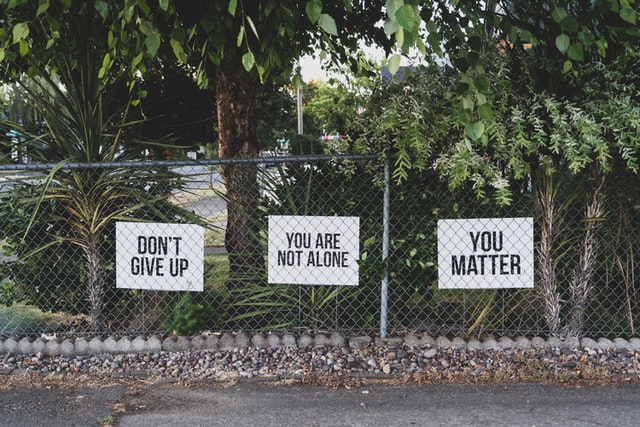Table of Contents
Group therapy plays an important role in substance abuse treatment and recovery.
Every group is different and activities are based on the needs of the particular group. However, substance abuse group therapy activities aim to help participants overcome addiction and gain insight about themselves and the world around them.
Effective substance abuse group therapy activities
Group session therapy brings people who are experiencing similar struggles together. It is used to overcome conditions such as anxiety, depression and substance abuse. Here are some effective activities for substance abuse group therapy.
1. Mediation and positive affirmation
Many therapists start off the sessions with meditation to help group members to calm down. Meditation helps ease anxiety and stressors that group members are facing when they arrive.

Positive affirmations may also be used at the start of the session, with the therapist reading them while group members close their eyes and breathe deeply.
2. Discover triggers and develop coping strategies
One of the most effective ways to treat substance use disorder is by identifying triggers and developing coping strategies to deal with them.
Group therapy offers a safe space for individuals to share information on triggers and learn from others in the group as they come up with their own plan to prevent relapse.
As group members share their struggles with each other, they also often see that they are not alone in battling addiction and substance abuse issues.
3. Develop communication skills
Language has a role in influencing one’s thinking and behavior.
As such, at least some time will be spent on discussing communication skills during substance abuse group therapy. Group members are asked to recognize how certain words may have a positive or negative impact on their recovery.
This brings an awareness on how a person’s thoughts can enhance or limit their ability to overcome substance abuse issues.
4. Role playing exercises
Role playing exercises, or ‘psychodrama’ allow group members to act out scenes that they may experience in real life.
This enables group members to observe, process and learn how to respond to triggers, communicate with others and gain insight into situations to improve their ability in maintaining sobriety.
5. Importance of self care
The importance of self care is often discussed during substance abuse group therapy. Many addicts struggle with physical health and need handles to help them get back on track.
Group members may be led to discuss the importance of nutrition, fitness and sleep. Goals for each category may be set. The therapist may also have group members discuss things that are preventing from achieving the set goals and ways to stop doing those things.
6. Learn the science behind addiction
An important part of substance abuse group therapy is to understand the science behind addiction. This helps participants to understand why they may struggle in their battle against substance abuse.
Being aware of the scientific reasons for substance abuse enables group members to develop strategic coping mechanisms that will give them better chances of overcoming their addiction.
7. Make a list of activities
Being prepared goes a long way when it comes to overcoming substance abuse. The therapist may get group members to make a list of activities that they can do when they’re faced with a trigger, or for when they feel anxious and vulnerable.
Cravings may occur anytime so knowing what to do at that point helps safeguard the decision making process.
Activities can include going for a jog, hitting the gym, cooking a meal, meditation, writing in a journal, calling a friend or simply listening to some soothing music.
8. Perception change activities
Our perception influences our reality. As such, the therapist may work to challenge the perceptions of group members to demonstrate that everyone perceives experiences as well as interactions differently.
Each member might be given a situation or conversation to read and explain what they think is happening or how the characters feel. The group is given the opportunity to discuss whether they agree or disagree and why.
Activities that challenge perceptions help substance abuse group therapy members to reflect that there may be times when their perception is skewed by past experiences. This enables them to improve their responses and relationships with people around them.
9. Music therapy activities
Sometimes the therapist may introduce an instrument or get the group to write songs that will help them on their journey. Music is cathartic and allows group members to express their thoughts and feelings without fear of being judged.

10. Reflecting on role models
In this activity, group members are asked who their role models are (or were) and why they admire them. If they used to have someone they saw as their role model but no longer is so, the change of opinion is addressed.
As group members reflect on their role models, the therapist may ask questions such as how they can emulate the admired traits.
11. Discuss gratitude
Many individuals with substance use disorders lose track of the positive things in their lives. Identifying things to be grateful for helps to keep things in perspective and empowers group members to shift to a more positive mindset.
12. Practice mindfulness
The therapist may walk through the basics of practising mindfulness and teach group members mindfulness activities.
Mindfulness activities do wonders in helping individuals ground themselves and stay present when faced with stressful situations.
Group members are likely to be asked to continue practising the mindfulness activities in their own time after the session to increase their effectiveness.
13. Practice anger management skills
Activities that help to develop anger management skills are quite common in substance abuse group therapy.
Therapists provide guidance on techniques to calm down and keep anger under control. Group members are also encouraged to share their experiences, discuss situations or things that might make them angry as well as steps they can take to overcome anger issues.
Conclusion
Substance abuse is not something that individuals should fight alone and with the right support and treatment, it is possible to gain sobriety and live a happy life.
There are different types of group therapies available. It is best to talk to a mental health professional if you are considering therapy. He or she will be able to recommend the best treatment for you.
The article is a part of our comprehensive series on “What is group therapy and what to expect?”
No matter what you’re facing, perhaps our website can offer up some solace or comfort. Know that you’re not alone, and that there is help available. This can be hard to keep in mind if you haven’t quite found the right support system. While it’s definitely not easy to find the right fit—whether you’re looking for a support group or a mental health provider—with diligence, it’s totally possible.
If you are a therapist, life coach or counsellor looking to join our growing community, head over to book a tour once you have learnt about the plans we offer. At A Space Between, there is a ready league of providers you can network with. With professionals from various backgrounds and therapy practices, there are bound to be the ones you can connect with. Private practice does not have to be lonely.


